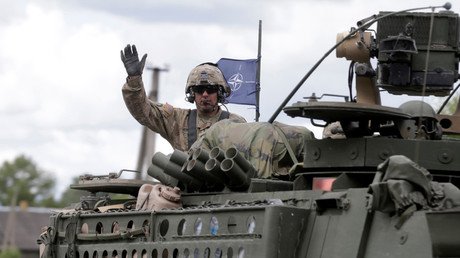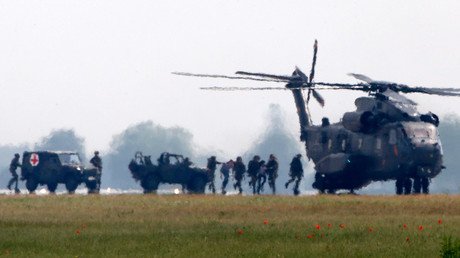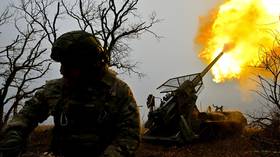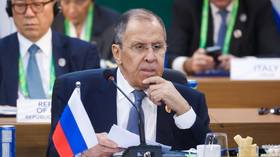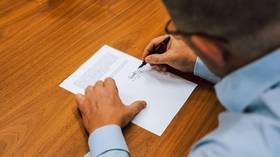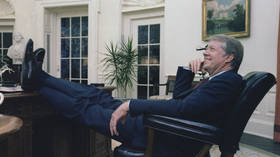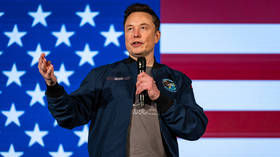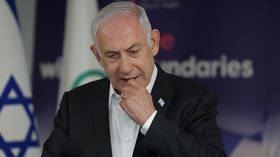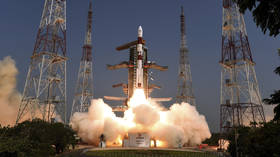German defense minister says Trump should be firm with Russia as NATO stood by US after 9/11
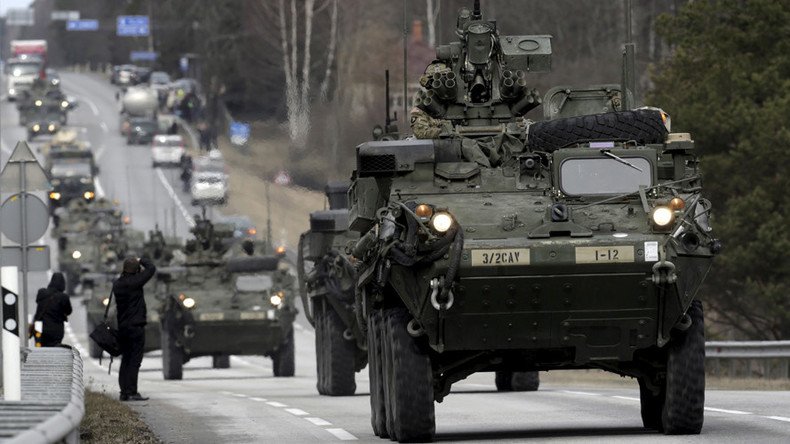
Donald Trump should be wary of possible rapprochement with Russia as NATO, which stood by the US after the 9/11 attacks, “isn’t just a business,” and needs backup in countering Moscow on Syria and Ukraine issues, the German defense minister said.
Appearing on the ZDF Thursday show ‘Maybrit Illner’, German Defense Minister Ursula von der Leyen emotionally argued that the US president-elect needs to understand NATO is more about values than business-like behavior.
“What his advisers will hopefully tell him and what he needs to learn is that NATO isn’t just a business. It’s not a company,” she said, adding, “I don’t know how he values NATO.”
During his election campaign, Donald Trump repeatedly voiced skepticism towards the bloc, calling it “obsolete” in the era of fighting terrorism worldwide. “Maybe NATO will dissolve and that’s OK, not the worst thing in the world,” he said earlier.
“You can’t say ‘the past doesn’t matter, the values we share don’t matter’ but instead try to get as much money out of [NATO] as possible and whether I can have a nice deal out of it,” von der Leyen remarked.
She also went on to address some unfounded speculation circulating in Western capitals, namely that Trump and Russian President Vladimir Putin are in a ‘bromance’ – a kind of relationship between the two leaders that would benefit bilateral ties between Moscow and Washington.
“Donald Trump has to say clearly on which side he is. Whether he is on the side of the law, peaceful order and democracy or whether he does not care about this and is looking instead for a best buddy,” von der Leyen said, reminding Trump that NATO “stood firmly” to support the US in the wake of the 2001 terrorist attacks.
Therefore, the Defense Minister continued, the issues of the Ukrainian conflict and the ongoing anti-terrorist efforts in the Syrian city of Aleppo are not to be taken off the table during discussions with Moscow.
Trump, however, earlier dismissed claims he favors Putin both personally and as a political leader, saying on NBC in September: “I don’t know him, I know nothing about him really. I just think if we got along with Russia that’s not a bad thing.”
Trump has also suggested that the US should not engage too much in defending European allies. “Hey, NATO allies,” Trump wrote in a Facebook post in July, “If we are not reimbursed for the tremendous cost of protecting you, I will tell you – congratulations, you will be defending yourself.”
The statement continues to add uncertainty regarding the US contribution to NATO – and the future of the bloc itself – as some analysts believe the new administration will focus more on domestic issues rather than policing world affairs.
NATO Secretary-General Jens Stoltenberg said earlier this week that he looks forward to meeting Trump next year to discuss the issue, as the bloc “brought together America’s closest friends in times of peace and of conflict for almost 70 years.”
His predecessor, Anders Fogh Rasmussen, has consistently called on the US to take the role of “the world’s policeman,” arguing that the outgoing Obama administration is too weak to fulfill it.
Meanwhile, von der Leyen, a key cabinet ally of German Chancellor Angela Merkel, downplayed her critical rhetoric on Trump, writing in еhe Rheinische Post newspaper on Thursday that Germany must build bridges to the upcoming administration.
“Discords and conflicts within our alliance only benefit those who do not share Western values,” she said.
Nevertheless, Berlin appears to be preparing for greater engagement in crises worldwide. In October, the German Institute for International and Security Affairs (SWP), a Berlin-based government-oriented think tank, published a paper urging the pursuit of its own economic and political goals independently from those of the US and, if necessary, even go against Washington’s interests.
“The Presidential elections in the US can have serious consequences for the global order,” said Johannes Thimm, author of the paper and head of the US research group for the think tank.
“Germany therefore should re-examine both its relations with the United States and its own contribution to the world order.”
